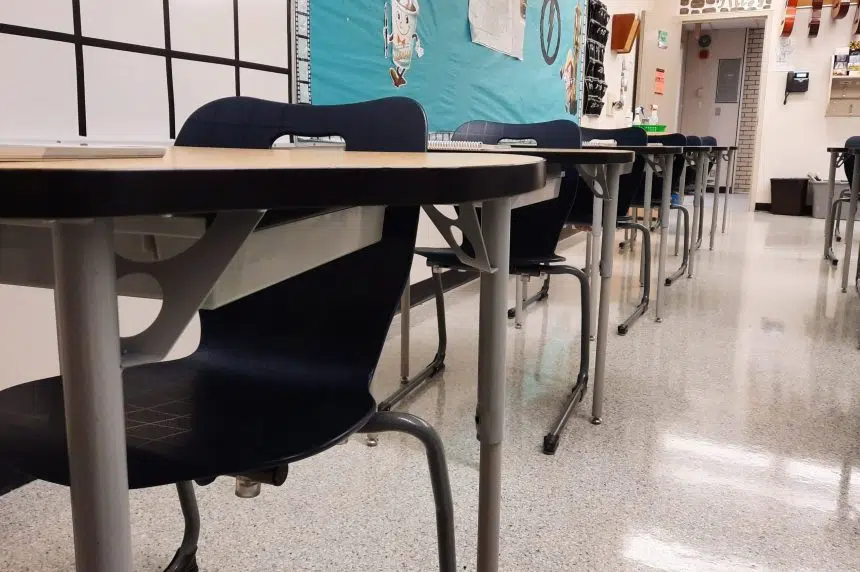The head of the teachers’ union in Saskatchewan is raising his eyebrows over a policy change for the current school year on COVID-19 close contacts.
Previously, students would have to isolate at home for two weeks if they were a close contact.
However, the Ministry of Education changed its recommendations. Now, if a student is deemed a close contact and is unvaccinated, they can come to class but cannot participate in extracurriculars. If they’re vaccinated, they can continue life as normal while monitoring for symptoms.
“We find it really inconsistent and, really, a little bit reckless when we know that kids are sometimes asymptomatic, especially for the first few days after infection. And so it makes for a difficult situation in our schools,” said Patrick Maze, president of the Saskatchewan Teachers’ Federation (STF).
Maze called the change illogical because it stops kids from taking part in extracurriculars which may be held outside, but allows them to sit in a classroom for hours close to other people.
“It’s going to prolong this situation of COVID if we can’t take those proactive measures to make sure those students who are exposed are being told to isolate,” said Maze.
The ministry declined to provide someone to talk about the change but did provide a statement.
It said that last year in some cases entire classrooms had to isolate for two weeks.
“This year’s approach is based on prioritizing the importance of maintaining in-class learning and high vaccination rates of community members, staff and students who are 12+,” read the statement.
The ministry said schools will still be notified when there are positive cases and contact tracing will still happen within schools.
“School divisions work with their local medical health officers to determine when to move to remote learning or cohorting situations. These changes would take into account local vaccination rates, case counts and other factors,” explained the ministry.
Maze doesn’t like that explanation.
“It’s a frustration for us when we see inconvenience to parents or disruption of a student’s learning as the reason for health orders,” said Maze.
For consistency’s sake, Maze believes the rules around isolation from the last school year should continue into this one.
Maze said the federation’s concerns were taken to the ministry, but with the response planning team having been disbanded when the public health orders ended July 11, he said the STF is playing a reactionary role instead of being able to bring inconsistencies and concerns up at the source.
“Teachers would like for provisions that protect their safety and protect their students’ safety put in place as preventative measures, yet it seems like we’re in another pattern similar to what we did last year where so much of it is reactive, waiting for cases to appear, and then all of a sudden ‘Oh, we need to move online’ or ‘Oh, we’ve got cases in our school and we need to have students wear masks,’ ” said Maze.











